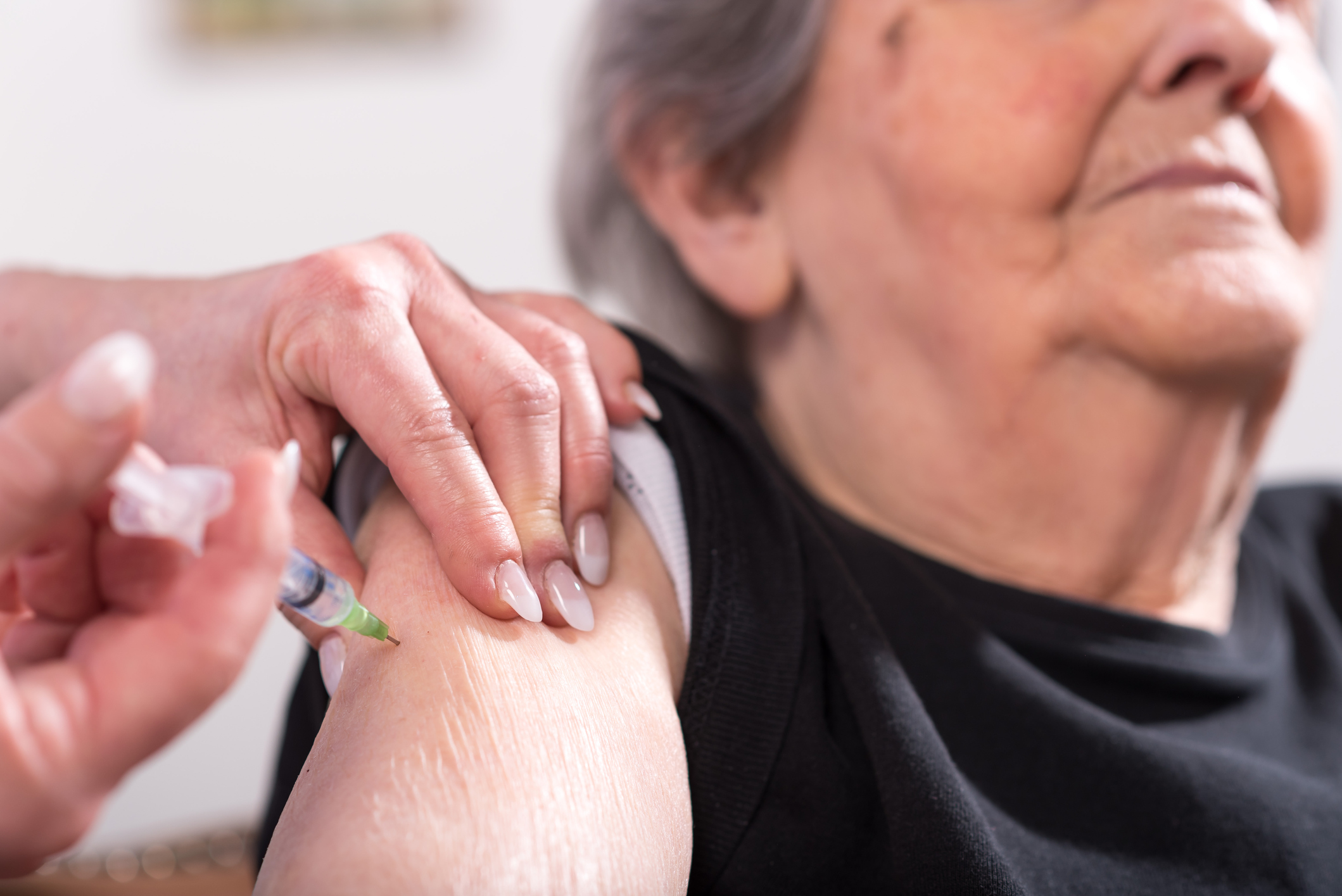It’s well into October and now that mask-wearing has been abandoned by many and more people are travelling, experts are anticipating a strong flu season following several rather mild years, thanks to COVID precautions. If you haven’t received your flu shot, there is still time for a vaccination that will offer protection during the peak of the season from December through February.
Although many people are hesitant about receiving a flu vaccine and a COVID booster, the Centers for Disease Control and Prevention says it is safe to get both doses at the same time. Because people over the age of 65 are at greater risk for developing serious complications like pneumonia from the flu, seniors may be advised to receive a flu vaccine developed to better activate an older immune system – a high-dose or quadrivalent vaccine may be recommended by your doctor.
According to a recent New York Times Well report, flu vaccines are updated every year based on patterns from prior flu seasons. Flu vaccines reduce the number of people who get sick by an average of 40 to 60 percent and help prevent thousands of hospitalizations and deaths. If the flu seasons experienced in the Southern Hemisphere already this year is any indication, the Northern Hemisphere may be in for a rough winter.
Although there may be some side effects from the flu shot including soreness or swelling at the injection site, headache, muscle aches, nausea or fatigue, they are generally mild and dissipate after 24 to 48 hours. It takes about two weeks for the immune system to build up protection after the vaccine, so it is possible to catch the flu during this time. The goal of the flu vaccine is to prevent serious illnesses from infection and keep people out of hospitals.
People who are 65 years or older should also be up to date on their pneumococcal vaccine to protect against pneumonia, meningitis and bloodstream infections. Talk with your doctor about which vaccine is recommended for you. Follow this link to Canada’s Public Health Services to learn more about vaccines that are recommended for older adults. Check with your local Public Health Unit to learn how to schedule your COVID bivalent booster vaccine – the second Pfizer-BioNTech bivalent vaccine booster recently received approval from Health Canada for individuals over the age of 12.






Add Your Voice
0 Comments
Join the Discussion